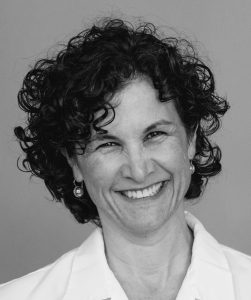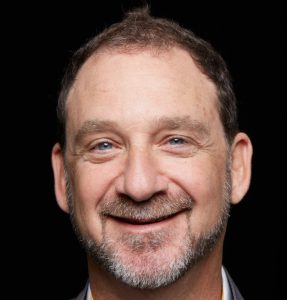Speakers at Virtual Symposium Shine Spotlight on Healthcare Inequities, Telemedicine
Addressing healthcare inequities and engaging technology to expand access to palliative care are crucial to supporting patients with serious illnesses, and collaboration is key to making that happen, said experts at this year’s Symposium Spotlights hosted by the California State University Shiley Institute for Palliative Care.
The virtual Spotlights, Oct. 8 and Nov. 5, were held in lieu of the institute’s annual National Symposium for Palliative Care Education and Research, which couldn’t take place in person because of the COVID-19 pandemic.
The impact of the novel coronavirus was referenced in the Spotlight theme, What COVID-19 Has Taught Us About Inclusive, Interprofessional, Integrative Palliative Care. Issues such as healthcare disparities and telemedicine, which have taken on new urgency during the pandemic, were explored in keynote addresses, topic presentations, and new research presented in a Virtual Poster Gallery.

“Healthcare disparities aren’t new – people of color have known it forever – but COVID-19 is highlighting this issue like never before,” said the Rev. Cynthia Carter Perrilliat, MPA, BA, who delivered the Oct. 8 keynote with friend and colleague Jessica Zitter, MD, in a virtual fireside chat moderated by the institute’s Executive Director Jennifer Moore Ballentine. “Broader communities and systems are now able to see it in a new way. Now we’re starting the conversation of ‘what can we do.’”
Collaboration Key to Reducing Disparities
Addressing healthcare disparities, especially in serious illness care, has become a life’s work for Perrilliat, co-founder and Executive Director of the Alameda County Care Alliance Collaborative (ACCAC), a faith-based program in the San Francisco Bay Area.
She began focusing on serious illness care more than 15 years ago, after being introduced to hospice and palliative care in the last 6 months of her father’s life. She said she was struck by how her dad’s hospice team approached their work as a calling and were committed to the kind of holistic, patient-centered care her family had embraced as a natural byproduct of their faith. They had just never seen it applied in medicine.
“People of color really have total mistrust of the healthcare system, but what I experienced (with my dad’s care team) was a very positive experience,” she said. Soon she was committed to helping more families of color access that transformative type of care.
“I saw a need and ‘how can we work together to bridge these gaps,’” Perrilliat said. “How do we deal with these disparities and medical distrust?”

Zitter, a critical care physician at Highland Hospital, Oakland, rose to national prominence after being featured in the Academy Award-nominated documentary “Extremis,” which highlighted heartbreaking end-of-life decisions facing patients and families – many of them people of color – in the hospital’s ICU.
She has since worked to shine a light on healthcare disparities as a national speaker and contributing writer to publications like the New York Times.
Zitter said over the past several years she has relied on colleagues and collaborators like Perrilliat to help her recognize and address her own implicit bias. She encouraged Spotlight attendees to do the same.
“My greatest teachers have been my friends,” Zitter said. “I feel a certain safety as I’ve gotten to know people of different backgrounds. If you don’t have a safe space, you can’t do this work. If we can create safe spaces for each other real change can happen.”
Perrilliat said even in the evolved fields of hospice and palliative care, practitioners must be intentional about collaborating and acknowledging biases. She said emotional climbing tools like stories, films, and personal experiences can “bring together audiences in a mutual understanding so that we can really start to make a difference.”
“I so admire and champion the originators of the movement, but I also want to challenge us because we have such a unique opportunity in this space,” Perrilliat said. “If we really practice what we proclaim about true person-centered care then it means we embrace the culture of that individual, the spirituality of that individual, whatever that means for them.”
The Future of Telemedicine in Palliative Care
The rollout of telemedicine may seem rapid to many palliative care clinicians, but to Fratkin it is long overdue. The founder and CEO of ResolutionCare Network, he has been using technology to care for patients and families across a large swath of urban and rural Northern California for several years.

When COVID emerged, Fratkin began sharing his telehealth expertise across the country, educating health professionals through workshops, podcasts, and free training programs, including a series of Telemedicine Open Forums hosted by the CSU Shiley Institute for Palliative Care and funded by a grant from the California Health Care Foundation.
He coaches and encourages health professionals to use simple strategies that let the medium fall away and allow them to form an authentic connection with patients and families that can often feel more personal than a traditional office visit. That does require getting over some initial hurdles, he said.
When starting a visit, Fratkin said, it’s important to “set the stage” so that patients, families, and the care team are all on the same level in an environment that feels comfortable. He said right from the start he asks everyone to set down their phone or iPad, so they aren’t focused on juggling a device.
“I get them to set it down and free up their hands – not just for my own visual experience or theirs, but to give us room where we can actually be in the space that we create,” he said. “When that happens, disbelief is suspended and all that anxiety sort of settles away and then we are just connecting person-to-person.”
Fratkin’s keynote address was moderated by Pamela Kohlbry, RN, PhD, CNL, Faculty Director for the CSU Shiley Institute for Palliative Care, who asked him what research is needed in telemedicine to move the needle forward.
“I think the main issues that come to mind for me are equity and access,” he said, adding that he “trusts the process to drive quality where access and capacity are available.”
Studying whether telemedicine has made healthcare more accessible to underserved populations – and what that means for those communities – could bring about meaningful long-term changes in care delivery across multiple healthcare settings.
“We realize that people who are really committed to using telemedicine are using it for stroke, they’re using it for dermatology, they’re using it for behavioral medicine, for psychiatry, for palliative care,” Fratkin said.
“They’re using it for urgent care within some really rigorously defined categories of need,” he added. “What we don’t know is where those edges are. I think that’s a really rich area for research.”
To stay informed about plans for our upcoming National Symposiums, please join our interest list.




